|
Even though Herbstalk isn't until June there are still many opportunities to learn about herbalism throughout the beautiful spring months. We've compiled a list of upcoming workshops happening around the Boston area, offered by our Herbstalk partners. We hope you can join in a few! Online Herbal Medicine Making Course
ongoing The Chestnut School of Herbal Medicine www.chestnutherbs.com The Art of Home Herbalism Online begins March 29 with Brittany Wood Nickerson of Thyme Herbal http://www.thymeherbal.com Spring Foods & Tonics March 31, 6:00 - 7:30pm The Kitchen, Boston Public Market with Steph Zabel http://www.thetrustees.org/things-to-do Hand Reading as a Tool of Diagnosis Sundays, April 3, 17, May 1, May 7, 1:00-4:00 p.m. Boston School of Herbal Studies, Arlington with Linda Patterson www.bostonherbalstudies.com Spring Cleaning for a Healthy Home April 6 CommonWealth Center for Holistic Herbalism commonwealthherbs.com Fertility Awareness Method: A Natural Approach to Fertility with Krystina Friedlander April 7, 6:30-9:30pm Boston School of Herbal Studies, Arlington www.bostonherbalstudies.com Shamanic Plant Journeying April 12, 6:30-9:30 p.m. 4 Minebrook Rd., Lincoln, MA with Tommy Priester www.bearmedicineherbs.com Herbs for Everyday Living: Spring Session 6 Weeks: April 13, 20, 27, May 4, 11, 18 Somerville, MA with Steph Zabel http://www.flowerfolkherbs.com Herbal First Aid: Managing Pain April 13 CommonWealth Center for Holistic Herbalism commonwealthherbs.com Herbal Free Clinic April 17 CommonWealth Center for Holistic Herbalism with Katja Swift and Ryn Midura commonwealthherbs.com Planting an Herbal Garden with Natalie De Normandie April 30, 1-4pm Boston School of Herbal Studies 45 Trapelo Road, Lincoln www.bostonherbalstudies.com Making Herbal Elixirs May 4 CommonWealth Center for Holistic Herbalism commonwealthherbs.com Herbal Psychological First Aid May 11 CommonWealth Center for Holistic Herbalism commonwealthherbs.com The Art of Home Herbalism Practicum begins in May with Brittany Nickerson of Thyme Herbal http://www.thymeherbal.com Herbal Apprenticeship Program begins May 28 Boston School of Herbal Studies www.bostonherbalstudies.com by Patrice Green Each year I look forward to seeing which of the spring bulbs have survived the winter and the ravages of squirrels. I greet each new bloom like the old friend it is, happy to see them again and excited to share in another growing season. This year, however, is different. We have sold the property we've lived on for the past decade. While I was OK with leaving the house, I was vastly unprepared - and surprised by - the depth of loss I feel upon leaving the plants. I hesitated to write this for a number of reasons. It's deeply personal and still very raw for me and while many see me as an extrovert, the truth is, I am actually quite private about a lot of things, especially that which affects me profoundly. However, I am also a writer, and my best writing is always about that which affects or inspires me, and fires my imagination until I have to share it. The plants I've loved also deserve a homage for all the teachings they've given me over these many seasons. Finally, if you are on this path, you need to know what you're getting yourself into! In my very first apprenticeship class my beloved teachers Tommy Priester and Madelon Hope told us that we needed to be prepared. Our lives would be forever changed by following this path. We would never look at plants - or the world for that matter - in the same way. I didn't understand it at the time, but in the intervening years had come to believe I knew what they meant. Now I know that I didn't have a clue. That spring of my apprenticeship the double mock orange blossom shrub planted for me by my father bloomed beautifully around the same time that someone in class mentioned flower essences. We were to learn how to make flower essences later in the season, and this plant which I've loved since childhood would not be in bloom then. I called my teacher Linda Patterson, whom I had taken other classes with, and begged her to walk me through making a flower essence. She was so patient and kind to me, described to me her process and I made my first flower essence from that plant. I'd already had shamanic training through other work, so it was easy for me to connect with the plant spirit. I was again unprepared for the experience. This particular plant was a cutting from an older shrub which my parents had since my childhood. Along with the messages about what this essence can give to the world were personal messages to me of a relationship forged when I was very small, and a special gift that the plant had given to me when it sent up a single beautiful stalk of white, fragrant flowers long after the normal blooming season so that I could carry that stalk in my bridal bouquet. Connecting to this plant in this way has forever changed me. Tommy and Madelon also told us that the plants which we saw daily or which lived in our yards were usually there because we needed them most, and that it would be a good idea to work closely with whichever of them called to us. I went on a tear - or maybe a mission - to make flower essences, oils, tinctures and teas with every plant willing to work with me on the property. The result is that I have a lot of flower essences, and have learned so much from those plants, for which I am deeply humbled and grateful. I have forged bonds that go deeper than the root systems of the very plants themselves. Now I have left them. Their care is no longer in my hands. I do not know if the new owners will look at the profusion of violets and celandine as weeds or the powerful plant allies they are. I fear that they will poison the "invasives" so that they will have a beautiful lawn. Will they rip out the solomon seal? What about the yarrow, queen anne's lace and the st. john's wort? I worry about my plant friends that I've left behind. I cannot even begin to think about my beloved double mock orange shrub without crying. That's the deepest wrench of all. Here's what I'm trying to say, kids: when you open yourself up to the plant spirits, you can't go through the world the way you did before. In the way that becoming a parent suddenly makes every news story about children more personal, because it could be your child, so too does the bond you are forging with the plants connect you to something else. When you become an herbalist, you are connected to something older, deeper, and wiser than that which we think we understand about life and how things work. Your definition of friends and family changes and expands. You are far more in tune with the true interconnection of life. Plants give us so very much - their blossoms, leaves, stems, their very roots - and ask for so little in return. They give us the oxygen we breathe and we in turn give them the carbon dioxide they need to survive as well. We are inextricably interconnected in a way the average person doesn't think about, but to an herbalist, that connection is profound. Leaving these plants behind, which had given me so much, is a deeply painful loss which took me by surprise. The night before the closing, I went to all the plants that were visible to say a private goodbye and to thank them for their love, lessons and support. When I got to the dogwood in our backyard, I couldn't help myself. I threw my arms around it and wept. Together we had fought hard to keep that tree from dying and it was thriving beautifully. I hope the new owners will use the phone number of the lovely man who helped save our tree so that it can continue to blossom and thrive. My new home has two apple trees and a beautiful willow tree. I am eagerly awaiting this growing season to see who else lives here. This is the part about renewal and new beginnings: there will be new relationships to forge and when I leave here, I'm sure there will be another painful parting. I hope I will be better prepared for it this time. Herbalism is not for the faint of heart, kids. You've been warned.  Patrice Green is an Herbal Educator, Certified Aromatherapist, Energy Medicine and Reiki Practitioner and founder of Green Aromatics. She is also the Assistant Director at the Boston School of Herbal Studies. She received her herbal training at the Boston School of Herbal Studies, and shamanic training from Isa Gucciardi, Ph. D. at the Sacred Stream in Berkley, CA. Inspired by time spent among the coastal Redwoods of Muir Woods and its beach, Green Aromatics strives to imbue its products and services with the same resilience, joy and equanimity of these majestic beings. Patrice may be reached through the Green Aromatics website. by Jenny Hauf I am lucky enough to have the pleasure of collaborating with my dear friend Steph Zabel, the founder of Herbstalk. This past weekend we got together to teach a class called “Waking Up to Spring with Herbs,” in which we discussed how to use, grow, and forage the herbs that support and nurture us as we transition from the black and white months of winter into the dawning deliciousness of spring. 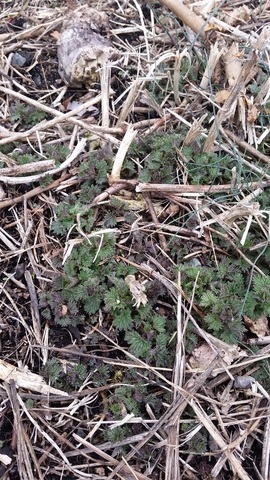 Wild Nettles (Urtica dioica) Wild Nettles (Urtica dioica) Because we always like to have fresh herbs to pass around to our students I headed out to hunt for one of my favorite plant allies, stinging nettle, which we would be discussing in our class. In a trusty nook of Jamaica Plain I walking on a raised path amongst cattails in the lightly flurrying morning, traveling with my eyes to the earth. The shed raiment of autumn was everywhere, crisp and ashy, ready for green growth to cover it and spring rains to hasten its return to mud. As I searched for the tiny first leaves of Urtica dioica—deep green, laced with acid, and tinged purple-red—I discovered other things. There were the crocuses, closed from the cold, but still stalwart and sweet. Long pearls of snowdrop buds dangled in delicate drifts. I also found a single squill blossom, ragged but deeply blue and alive. Bramble leapt over and sidled the path, catching on my skirt and grabbing at my bare knees. Beyond the bramble rose cattails, some still fuzzy with the seed heads they had grown months before, swaying around me. Beyond the marsh were witch hazels, their spidery flowers egg yolk yellow, and a tremendous grandmother of a silver maple with branches tipped in a burgundy haze. Snowflakes occasionally laced through the branches, stalks, and stems as I continued searching, and eventually I stumbled upon my prize: a tiny patch of nettles in miniature, their infant leaves unfanning and little stingers shimmering. Gratefully I snipped a few and laid them in a paper bag. Overhead and throughout the marsh the red-winged blackbirds sang, and I headed home with a handful of brand new life in my arms.  After creating the medicinal herb program at Allandale Farm, Jenny is excited to be embarking on the second season of her own herb farm, Muddy River Herbals. She is thrilled to be offering high quality, sustainably grown herbs to the people of eastern Massachusetts. For more information please visit her website or contact Jenny directly at muddyriverherbals (at) gmail (dot) com for ordering inquiries and herb availability. Muddy River's herbal CSA is currently accepting new members so please visit the website for details. by Melanie Brown Indigestion is an uncomfortable and painful experience often associated with symptoms of heartburn, bloating, gas, and constipation. To top off this misery we often don’t understand the underlying cause, so in a desperate desire for relief many of us turn to over-the-counter antacids to put a stop to the symptoms. However, over-use and abuse of medications is not healing the underlying problem, but only masking it and creating further damage to our bodies. There is another path we can walk on with our green allies, that which nourishes, heals and protects. A major research study led by an epidemiologist of the Johns Hopkins Bloomberg School of Health revealed that long term use of PPI’s (proton-pump inhibitors) significantly increases the chances of developing chronic kidney disease, dementia, bone fractures, infections, and heart problems. Antacids are not addressing what is truly going on inside of our stomachs. The majority of the time acid reflux occurs because our stomachs are deficient in hydrochloric acid (HCL). A powerful digestive agent, HCL is incredibly important for maintaining proper assimilation of proteins into the essential amino acids and nutrients our bodies need to stay healthy. HCL also prevents disease by eliminating pathogenic bacteria and yeast. So now that we have a better understanding of how important stomach acid is to our health it becomes apparent that antacids (PPI’s) are creating a vicious cycle that we are unable to break free of. They neutralize the already low acid in our stomachs, and when we try to come off of them the pain is unbearable and further damage is caused to the esophagus from food remaining undigested, sustaining a dependency on these medications that are now proven unsafe. After becoming educated to what was going on I became concerned for family members who I knew were going through this exact issue -- one being on antacids for over a year and the other experiencing painful heartburn almost daily. So I threw on my green cape (insert super herb healing hero here), gathered my most trusted nourishing plants, and flew on over to my open minded family members. On top of healing with plants we must often look at our diets and lifestyle patterns as well. Indigestion and everything that accompanies it is often manifested by processed foods, refined sugar, over consumption of alcohol and coffee, and unhealthy stress. It is also not wise to run over to your medicine cabinet and throw out your medications cold turkey. Over time, with some small yet important changes, you will find yourself no longer turning to drugs for relief. I have witnessed and experienced the following three herbs providing profound healing on the entire digestive system. Dandelion (Taraxacum officnale): If I were to guess, most people know about this sweet, generous, yellow-sunshine faced flower. On top of being a supreme liver tonic, dandelion replenishes healthy levels and maintains production of HCL and bile. All parts of dandelion may be harvested and used at any time of the year, with the root being the best choice for medicine here. I highly recommend making your own tincture or vinegar, for there is nothing more satisfying and joyful than making and taking your own lovingly gathered plant medicine. 10-20 drops of tincture before each meal is an excellent regimen. Slippery Elm (Ulmus rubra) and Marshmallow (Althaea officinalis): Both of these plants contain mucilage. These complex carbohydrates have a lubricating quality so that in the body they produce an effect similar to mucus, coating and soothing raw, exposed, irritated, dried membranes. Taking both plants will address the damage done by acid reflux and medications. Slippery elm bark is incredibly nourishing, especially for the digestive system. I like to make a cold water infusion by weighing out a half ounce of cut and sifted herb in a quart sized mason jar, letting it steep for 2-4 hours, then straining it and sipping it throughout the day. I also learned from herbalist Susun Weed that rolling powdered slippery elm together with honey to form into small bite-sized balls can be taken as often as needed. Slippery elm has never failed me in instantly relieving heart burn. Marshmallow is cooling, moistening and sweet and all parts may be used, but the root contains the highest amount of mucilage with the cold water method of infusing working best in this application as well. Incorporating all three of these plants into your life -- while also making necessary lifestyle changes -- will bring great and lasting positive results. Break the cycle and heal with whole plants and whole foods for whole health. References: http://www.npr.org/sections/health-shots/2016/01/11/462423759/popular-acid-reflux-drugs-are-linked-to-kidney-disease-risk http://staugustine.com/living/health/2016-02-03/long-term-use-antacids-can-cause-more-harm-good#.VsyYtfkrLIU Wise Woman Herbal, Healing Wise, by Susun S. Weed The Book of Herbal Wisdom by Matthew Wood  Melanie Brown is a native New Englander who has had an early connection to nature and the outdoors. Together with her four year old son she gathers the ingredients to make small batch plant based body care products which you can find at her herbal apothecary, FIR&ELM. She is a graduate of Boston School of Herbal Studies and currently attending The Gaia School of Healing and Earth Education in Vermont. Her passion is to share and spread the message of community herbalism that lies right outside in our own backyards. |
Archives
November 2023
Categories
All
|
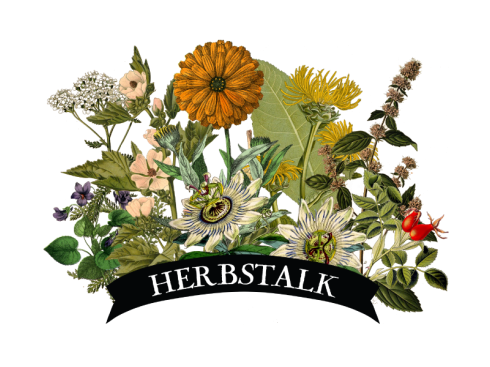
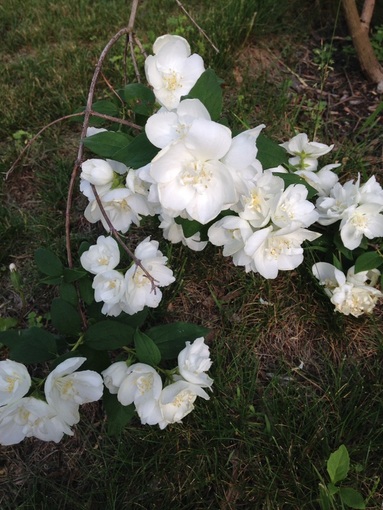
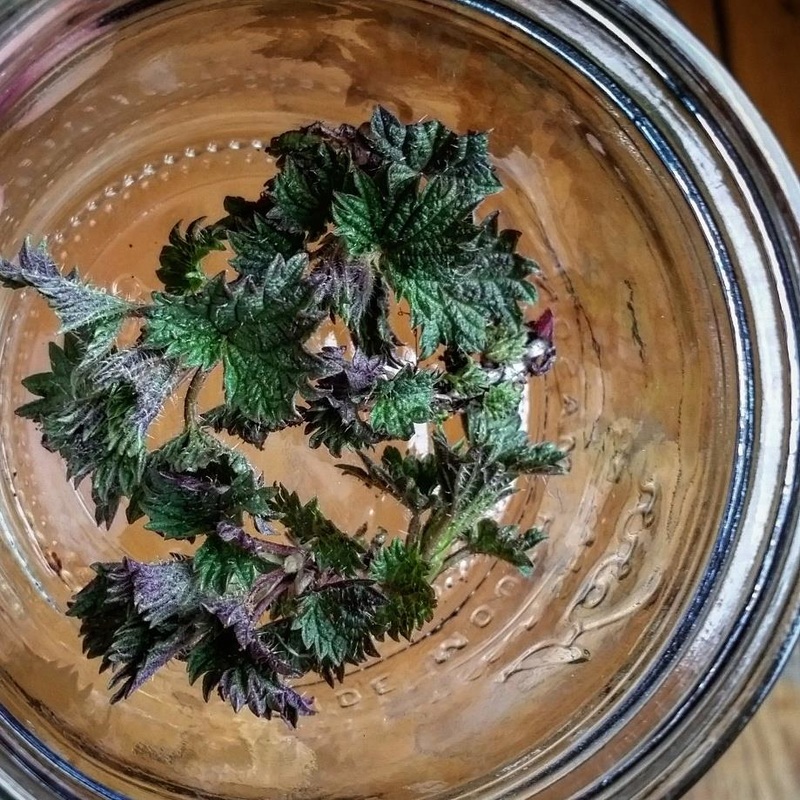
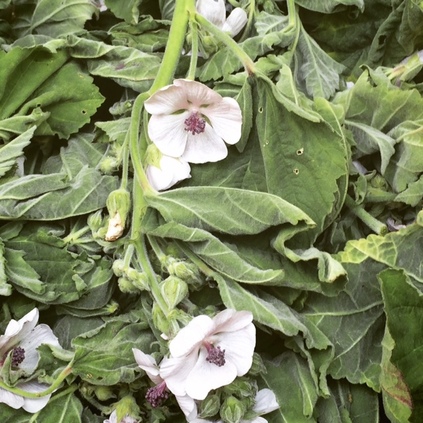
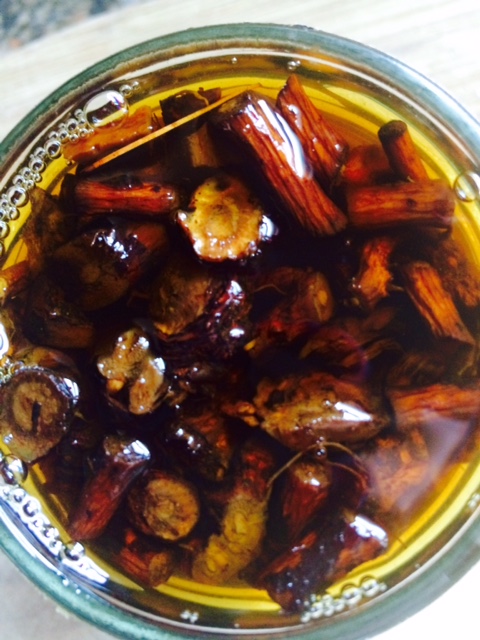
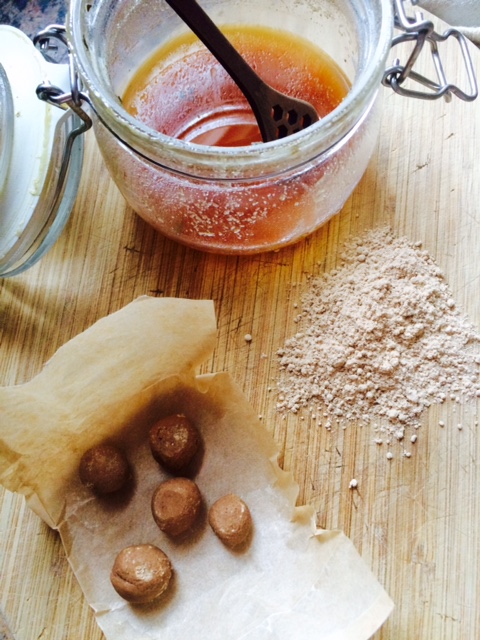
 RSS Feed
RSS Feed